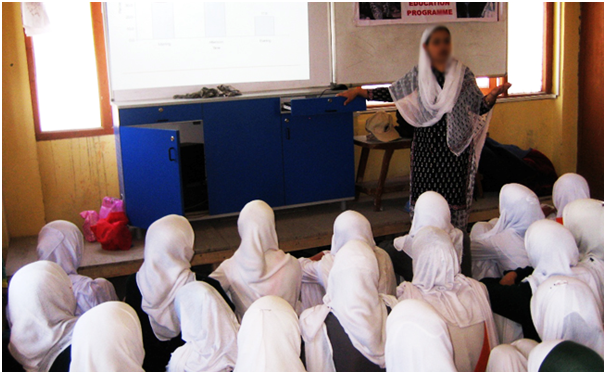JK Education Dept Moves Proposal To Declare Teachers As VIPs
A classroom in Jammu and Kashmir

SRINAGAR: Jammu and Kashmir may become the first state to officially declare teachers as VIPs with the state's school education department moving a proposal for their inclusion in "Warrant of Precedence".
In the first of its kind initiative in the country, the school education department has written to the state government for inclusion of teacher fraternity in "Warrant of Precedence" along side the President of India, Prime Minister, State Chief Ministers and a host of official dignitaries.
The Directorate of School Education, Kashmir, has sent the proposal to the J&K government, arguing that the move will "restore and enhance the dignity" of teacher fraternity which will "fundamentally change" the outlook of teachers in the society.
"The practice in most of the developed countries is that teaching profession attracts best of minds, has very attractive salary and service packages and there are social, legal and statutory privileges granted to teachers in their routine social and administrative transactions," a letter by Shah Faesal, who recently took over as Director of School Education, Kashmir, says.
"A long term and effective intervention could be the inclusion of teachers in the J&K Warrant of Precedence" so that we can fundamentally change the way teachers are looked at and they not only get the deserved respect but there is statutory obligation on others to offer courtesy and their official status is elevated," the letter sent to the Commissioner Secretary of School Education, J&K government, says.
The "Warrant of Precedence" confers special privileges on the President of India, Prime Minister, Chief Ministers, Members of Parliament, Chief Justices, State Legislators and other government dignitaries.
The J&K's school education department has proposed to include teachers, including professors, lecturers and masters, as clause 28 (a) in J&K Warrant of Protocol, issued vide Govt Order No: 13 H and P of 2001. If accepted, the proposal will put the teacher fraternity along side the Director of Doordarshan or a junior IAS officer serving in the state.



